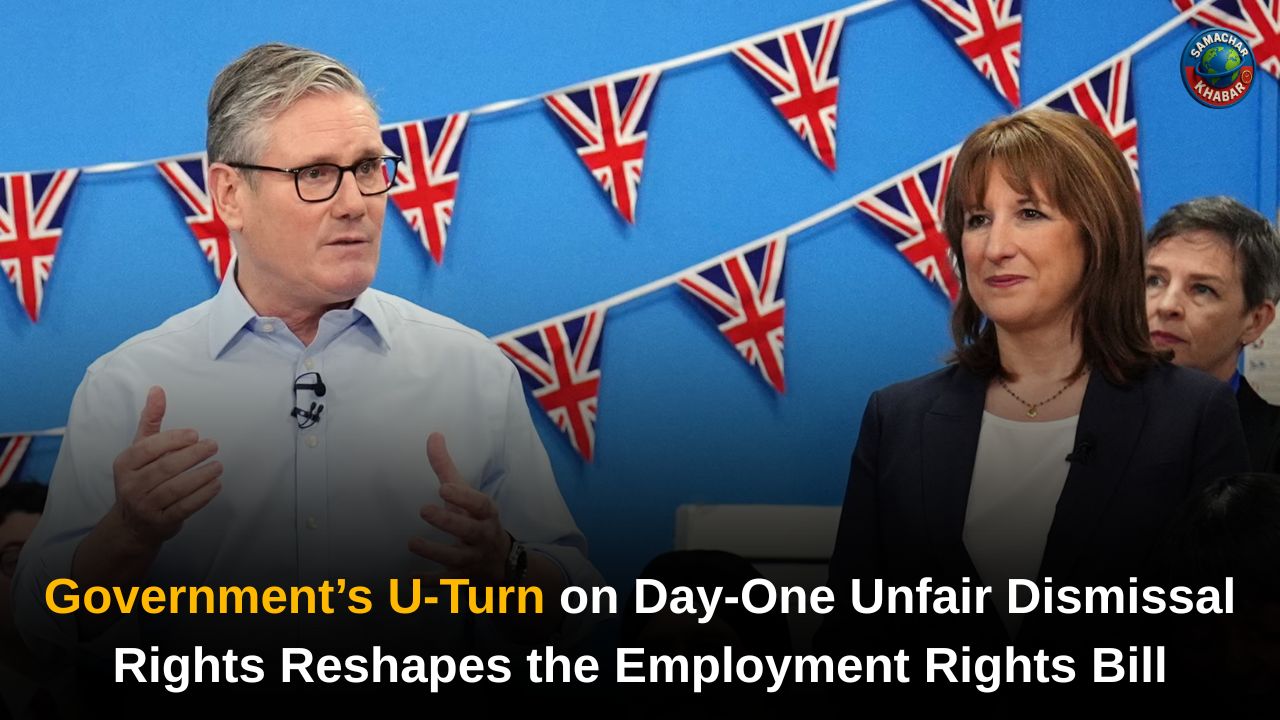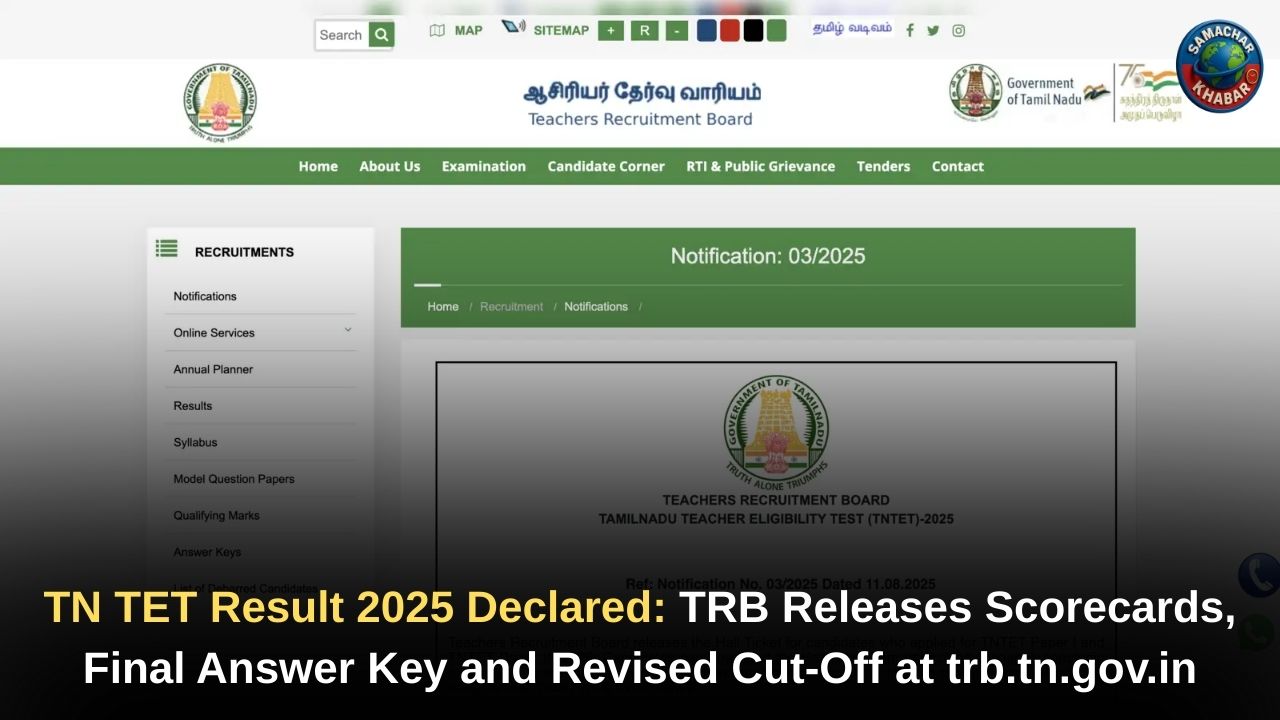The UK government has executed a major policy reversal by scrapping its manifesto promise to grant workers day-one protection from unfair dismissal. Instead, unfair dismissal rights will now begin after six months, following intense negotiations with major business groups and trade unions. The unexpected shift aims to break the prolonged parliamentary deadlock that has stalled the Employment Rights Bill in the House of Lords.
While day-one sick pay and paternity leave remain scheduled to take effect in April 2026, the compromise has triggered mixed reactions across the political spectrum, unions, and employers—raising deep questions about the future of Labour’s employment reform agenda.
Key Takeaways: Government’s Revised Unfair Dismissal Policy and Its Impact
1. Six-Month Threshold Replaces Day-One Protection
The government has dropped its central manifesto pledge and confirmed that unfair dismissal protection will apply only after six months of continuous employment.
2. Business Pressure Drives Compromise
Major business groups warned that day-one rights could deter hiring and add significant financial and legal pressures on employers.
3. House of Lords Opposition Forced the U-Turn
The Bill faced repeated resistance in the House of Lords, creating a legislative log jam that threatened to delay key 2026 reforms.
4. Day-One Sick Pay and Paternity Leave Remain Intact
Despite the reversal of unfair dismissal, day-one sick pay and day-one paternity leave will still come into force in April 2026.
5. Compromise Secures Royal Assent Timeline
The government claims the shift is crucial to ensuring the Employment Rights Bill reaches Royal Assent without further dilution or postponement.
Intense Negotiations Lead to a Strategic U-Turn
The decision to drop day-one unfair dismissal rights followed a series of intensive discussions brokered by the Department for Business and Trade. Representatives from six major business bodies and several trade unions engaged in closed-door negotiations aimed at resolving key areas of contention. According to the DBT, the talks produced a “workable package” that balances worker protections with economic stability.
Under the revised plan, the qualifying period for unfair dismissal will be reduced from 24 months to six months—still a significant shift from the current law but far short of the ambitious day-one protections initially promised.
To strengthen the revised framework, the government also confirmed that the unfair dismissal qualifying period can only be changed through primary legislation and that the existing compensation cap will be lifted.
Why Government Shifted Away from Its Manifesto Promise
Labour’s election manifesto clearly pledged “basic rights from day one,” including protection from unfair dismissal. However, after taking office, ministers faced mounting pressure from employers who argued that day-one protection would undermine hiring confidence and increase tribunal risks.
Business Secretary Peter Kyle defended the U-turn, stating that the manifesto also promised to bring people together and avoid pitting workers against employers. Kyle emphasised that the compromise emerged directly from employer–union negotiations, and his role was not to obstruct that consensus.
Senior Labour figures—including Angela Rayner—had previously defended day-one rights, making the reversal particularly striking. Political opponents seized on the move, with Conservative leader Kemi Badenoch calling it a “humiliating U-turn.”
Trade Unions: Divided Response to the Compromise
Trade unions were split over the revised six-month threshold. The Trades Union Congress (TUC) accepted the compromise after days of negotiation, prioritising the timely delivery of day-one sick pay and other reforms scheduled for April 2026. TUC General Secretary Paul Nowak urged the House of Lords to respect Labour’s mandate and pass the Bill quickly.
However, Unite—the largest donor to the Labour Party—strongly opposed the move. General Secretary Sharon Graham called the bill a “shell of its former self,” arguing that repeated rollbacks risk undermining workers’ trust in Labour’s employment agenda.
Other unions acknowledged that without the compromise, parliamentary delays could have pushed key worker protections beyond 2027.
Business Groups Welcome Clarity but Retain Concerns
Six major business organisations, including the CBI, CIPD, British Chambers of Commerce, REC, Federation of Small Businesses and Small Business Britain, welcomed the six-month threshold. They said it restored confidence in hiring and aligned with existing legislation.
However, they also expressed concerns about several remaining aspects of the Bill, including:
- Rights for zero-hours workers to guaranteed hours
- New rules for seasonal and temporary employees
- Thresholds for industrial action
- Upcoming secondary legislation
They stressed the need for clear guidance, sufficient resources for employment tribunals, and strong support for the Fair Work Agency—which is set to launch in 2026.
Breaking the Parliamentary Deadlock
The Bill has been embroiled in a prolonged “ping-pong” between the House of Commons and the Lords. The Lords voted twice in favour of a six-month qualifying period, blocking the government’s efforts to maintain day-one rights.
The U-turn ultimately aims to break this deadlock, ensuring the Employment Rights Bill progresses to Royal Assent and avoiding delays that would jeopardise the planned rollout of major reforms.
Expert Analysis: Why Six Months Matters
Ben Harrison, Director of the Work Foundation at Lancaster University, welcomed the government’s decision to resolve the legislative gridlock. He described the six-month threshold as a meaningful improvement that would significantly boost job security.
According to Work Foundation analysis, had the six-month protection been in place in 2023:
- 1.2 million fewer people would have been in severely insecure work
- Up to 3.9 million workers would have enjoyed more secure jobs
Harrison urged the government to ensure the Bill reaches Royal Assent without further dilution and emphasised the need for vigilant enforcement to prevent rogue employers from undermining new regulations.
A Defining Shift in the Future of UK Employment Rights
The government’s decision to scrap day-one unfair dismissal rights represents one of the most significant policy shifts in the Employment Rights Bill so far. While the six-month threshold is a major improvement over the current two-year requirement, it has exposed deep divisions across political parties, unions and businesses. Yet the compromise has cleared the legislative bottleneck and secured the future of key reforms set for April 2026.
As the Bill moves toward Royal Assent, its success will depend on unified engagement among government, employers and unions—and the commitment of the Fair Work Agency to uphold the protections promised to millions of workers.
FAQs on the Government’s U-Turn on Day-One Unfair Dismissal Rights
1. Why did the government scrap day-one unfair dismissal rights?
The government reversed the policy to break the House of Lords deadlock and address business concerns that day-one rights could discourage hiring.
2. What is the new qualifying period for unfair dismissal protection?
Workers will now gain unfair dismissal protection after six months instead of day one or the previous two-year requirement.
3. Will day-one sick pay and paternity leave still be implemented?
Yes. Day-one sick pay and paternity leave remain scheduled for implementation in April 2026.
4. How did business groups respond to the six-month threshold?
Business groups welcomed the change, calling it clearer and more practical, though they still have concerns about other powers in the Bill.
5. What impact will the six-month threshold have on workers?
Experts say it will significantly increase job security, potentially reducing severely insecure work and improving conditions for millions.


















